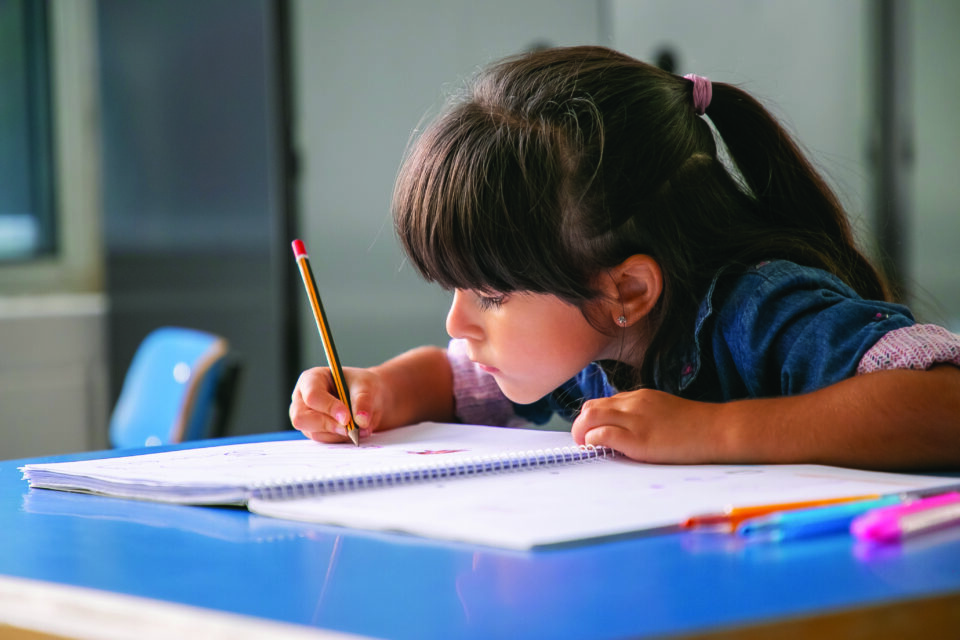January 1, 2022
By: Kimberly A. Bradley, MS, LOTR
As this time of year approaches, many families are anxiously awaiting acceptance letters to private schools, hoping for a lucky lottery number to be pulled for a public school, or anticipating OneApp enrollment results.
This can be extremely stressful for all families, however, when you have a child with a learning disorder, an appropriate school placement is critical and can be very challenging.
According to the National Center for Learning Disabilities, 1 in 5 children have a learning or attention disorder and 1 in 59 children are diagnosed with Autism Spectrum Disorder (Center for Disease Control). Combine these alarming statistics with the pandemic, children with exceptionalities are having greater challenges than ever before as intervention and accommodations were significantly limited for many.
Due to the pandemic, many children have missed out on intervention as well as schools being unable to detect or identify children with learning disorders. Now, more than ever, schools are facing even greater challenges of meeting the child’s special needs in the classroom.
Many families, however, do not know the differences in what a school has to provide or does not have to provide for a child with an exceptionality, as public schools and private schools are quite contrasting.
At a public school or charter school, a child that has been identified with a special need according to IDEA (Individuals with Disabilities Education Act), can either have a 504 plan or an IEP in place.
The Individuals with Disabilities Education Act (IDEA) requires public schools to provide free and appropriate public education to eligible children with disabilities throughout the country. It ensures the child receives special education and related services, such as PT, OT, ST, and Adaptive PE.
The 504 plan comes from Section 504 of the Rehabilitation Act of 1973. It was created to improve access to accommodations for students with special learning needs in public schools and ensure academic success in the learning environment.
Individualized Educational Plan (IEP) is a legal document and plan that identifies the student’s disability according to IDEA (Individuals with Disabilities Education Act). An IEP is for those students with disabilities that require specialized educational instruction and related services. It is more involved than a 504 plan, and requires documentation of goals and growth.
A 504 plan may include accommodations that can be provided in a regular education classroom, such as preferential seating, extended time, or a pencil grip. An IEP will include special education instructional time and frequency and duration of related services.
Public schools are required by law to have IEPs in place for all eligible students and provide special education and related services (OT, PT, ST, and APE) as stated in the IEP.
Public schools are also mandated by law to provide 504 Plan accommodations as recommended for identified students.
As more children are identified with special needs, many are applying, being accepted too, and attending private or independent schools. However, these schools are not required by law to have IEPs or provide 504 plan accommodations for children with special needs. Just as they have the ability to accept or not accept children who apply to their school, they have the choice to provide accommodations or not.
With climbing numbers of children with learning disorders, many private and independent schools have been increasingly more accommodating and recognizing this great need for intervention and services for each child’s individualized learning, disability or not. Some private schools have resource support built into the student’s day and some offer small and levelized core curriculum groups. Some have speech therapists and reading interventionists on staff, and also allow outside service providers such as OT and PT and ABA therapists to come in to work with students during the school day. Most private schools are often very responsive to suggestions and accommodations for success in the classroom provided to them if they are reasonable and attainable.
Many families look to private and independent schools as an option for their child with special needs as they often offer small class sizes, individualized attention, various approaches to learning, and the freedom to adapt curriculum as needed.
If you are looking for a private school for your child with special needs, it is important to always be upfront and honest with the school regarding your child’s special needs. This may include providing current and past evaluations, and signing release forms for the school to communicate with outside providers or medical staff. It is also important to ask these questions:
- Is there a learning specialist or resource support personnel on campus?
- If so, how is the need for a learning specialist determined? What is the cost?
- Is resource support provided in a small group, individual, or consult basis?
- Do you allow outside providers (private or public) on campus to see students?
- How often are conferences or meetings held with teachers, families, and resource support to discuss a child’s progress?
- What are some examples of accommodations that you provide to students?
- Are there small groups or levelized instruction for certain subjects?
- Is there a documented plan for children who are in need of accommodations, and how is this plan communicated to all teachers?
Private and independent schools have progressively started to include more children with special needs that apply to their schools, as they have learned, with accommodations and support the school can be more inclusive and diverse. Public school is another option for many children with exceptionalities, and the same questions can be asked to the public schools, as they must legally provide accommodations for children with learning disorders.


